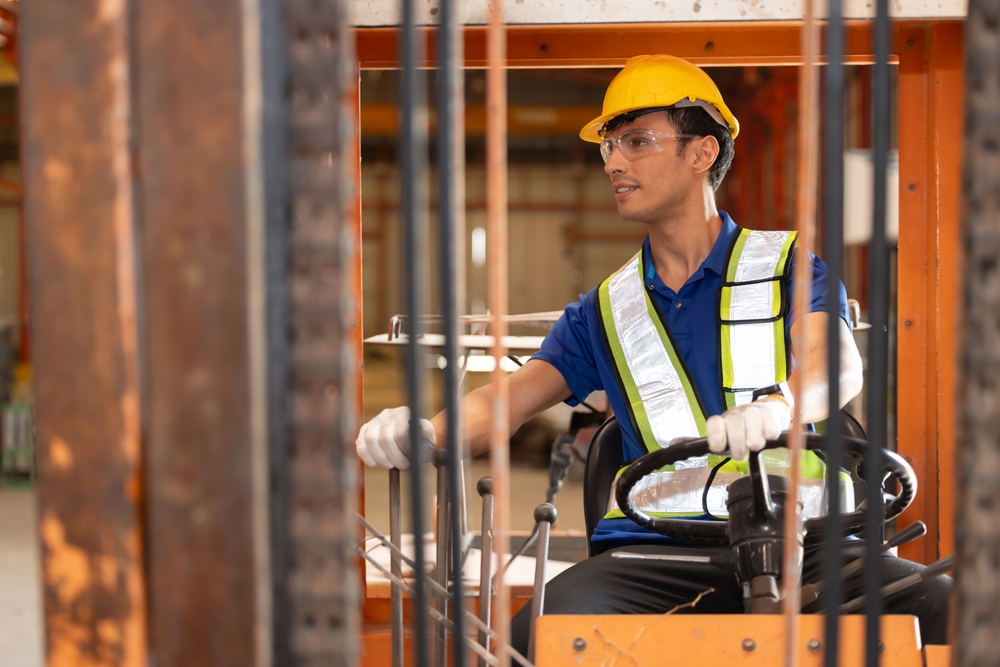A Guide to Rough Terrain Forklift Operation
Operating a rough terrain forklift carries an entirely new set of challenges compared to indoor use on a level surface. Safe operation requires advanced skill and training in forklift usage, and specific protocols should be followed to ensure safety of the operator and others in the vicinity. Follow these guidelines to keep your operation safe.

Check Your Vehicle
A forklift that suddenly malfunctions can be a serious hazard, especially with a load in place. Damage to product or injury to personnel can be avoided with a pre-operation vehicle check, which should take place before each use of the forklift, including:
- Tires. Over inflation can lead to rupture and reduce friction. Underinflated tires go flat more readily. In either case, a repair can be difficult if the forklift is stranded on rough terrain.
- Battery. The battery going dead in the middle of an operation can lead to dangerous conditions for the operator and everyone else in the area.
- Fluids. Oil, antifreeze, and other fluid levels should be checked before operation.
Practice in Advance
A forklift simulator can give operators a chance to practice on “rough terrain” before tackling the real thing. There’s no substitute for experience, but a forklift simulator can prepare you and reduce the chances of making a mistake on the job.
Know the Safety Standards
Stay up to date by perusing manuals, guides, and literature put out by the manufacturers of the forklifts as well as the industry leaders. Safety standards implemented thoroughly can help keep workplace accidents at a minimum.
Pay Attention
Rough terrain forklift operation requires the driver to be constantly aware of the ground surface conditions in the direction of movement, and requires focused attention at every phase of the task at hand. A lapse in vigilance can have disastrous consequences.
Take a Rain Check
Weather can significantly and negatively affect rough terrains – rain, snow, sleet, and hail can make the area unsafe, causing slippery mud, potential sinkholes, poor traction, and other dangerous working conditions.
All forklift operators should be certified and keep their training up to date, for their safety and that of those around them.
